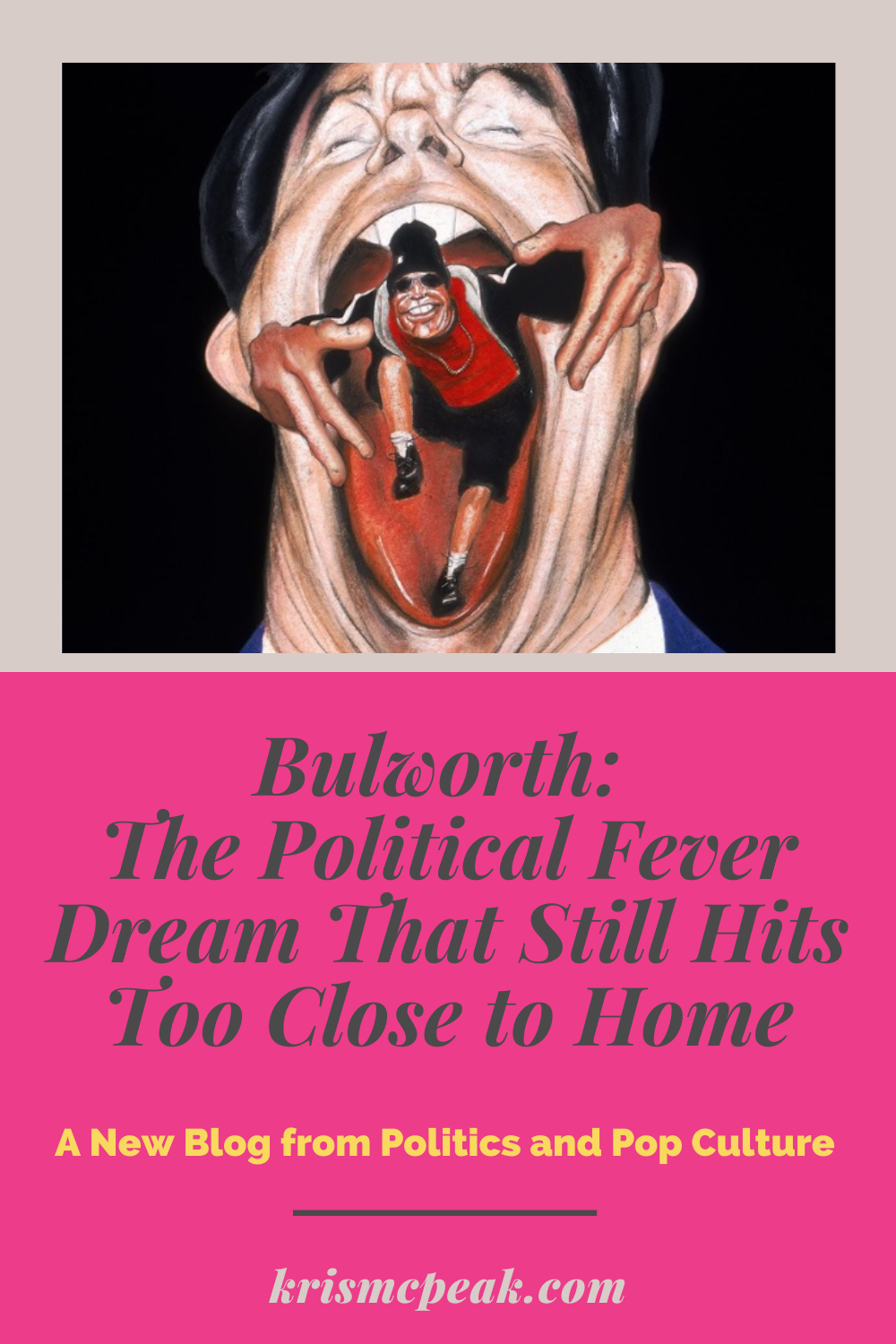Bulworth: The Political Fever Dream That Still Hits Too Close to Home
Back in 1998, Warren Beatty gave us Bulworth, a movie that was part satire, part dark comedy, and part “what the heck did I just watch?” The story follows Senator Jay Bulworth, a man so disillusioned with politics that he hires a hitman to kill him. But while waiting for the inevitable, he decides to spend his remaining days telling the truth. And not just “politician truth”—the actual, ugly truth about corruption, race, poverty, and media spin.
Oh, and he does it all while rapping in sunglasses.
It’s one of those films that you watch and think: this could never happen. But then you look at where politics has gone in the last two decades, and you realize—actually, Beatty might have been onto something.
Let’s dig into what Bulworth nailed with startling accuracy, what was totally bananas, and what it still has to teach us in 2025.
The Realistic: When Satire Becomes Prophecy
💰 Money Still Runs the Show
In Bulworth, the senator is blunt: Washington is controlled by money. Politicians survive on campaign donations, lobbyists, and the backing of powerful industries. In the late 1990s, this idea still felt a little taboo to say out loud. Today, it’s not just believable—it’s the foundation of how the system works. Citizens United (2010) cracked the floodgates wide open, and now billionaires and PACs play chess with our elections. Beatty was satirizing in 1998, but what he wrote could play as a straight-up documentary in 2025.
🗳️ People Are Desperate for “Real”
Bulworth’s rants and truth-telling captivate crowds because they’re tired of canned speeches and soundbites. Sound familiar? We’ve seen both left and right embrace “outsider” candidates who throw the script out the window. Bernie Sanders’ blunt critiques of the 1%, Donald Trump’s bombastic “say what I want” persona, even AOC’s Instagram Lives—different politics, same hunger for authenticity. Bulworth tapped into a timeless truth: people connect with politicians who feel human, even if that humanity is messy.
📺 Media Loves the Circus More Than the Issues
The film also skewers the role of media, showing how coverage of Bulworth focuses more on his antics than the substance of what he’s saying. He’s entertaining, so he gets airtime. He’s outrageous, so he trends. Sound familiar? Modern politics is inseparable from spectacle. A policy discussion rarely goes viral—but a slip-up, zinger, or awkward moment? That’s headline gold. Beatty’s vision of politics as performance wasn’t just satire—it was foreshadowing.
The Ridiculous: Where Beatty Went Full Hollywood
🎤 The “Rap Politician”
Let’s be honest: Warren Beatty rapping is both iconic and mortifying. On one hand, it was an attempt to show Bulworth breaking free from the stiffness of political language. On the other hand, it plays like “dad tries karaoke at the block party.” In 1998, it was cringey but playful. In 2025, it feels like a meme waiting to happen. The symbolism works—but the execution is pure Hollywood exaggeration.
🔫 The Hitman Plotline
Bulworth hiring his own assassin is darkly funny but totally unrealistic. No senator could pull this off without a scandal breaking before Act II. It’s a satirical plot device, not a mirror to real politics—but it does highlight the despair and exhaustion we see in many politicians who burn out or walk away from the system.
❤️ Halle Berry, Because Hollywood
Enter Nina (played by Halle Berry), a love interest who swoops in with wisdom and passion. Their whirlwind romance is more fantasy than realism, but it does serve as a device to connect Bulworth to the Black community and ground his awakening. Still, let’s be real—if your senator is running around in shades, rapping, dodging a hitman, and ranting about systemic corruption, he’s probably not also scoring a believable romance subplot.
Why Bulworth Still Matters
So why rehash a quirky 1990s satire in 2025? Because Bulworth still resonates.
It forces us to ask: What would happen if a politician told the truth? Not the focus-grouped version of truth. Not the spin-tested one-liner. The messy, uncomfortable, raw truth.
We’ve seen glimpses of this. Sometimes, it resonates and builds movements. Sometimes, it devolves into chaos and disinformation. Authenticity is powerful—but it’s also a double-edged sword. Beatty’s film shows us both the promise and the danger.
Today, politics is still a performance. Money still drives decisions. Media still prefers drama over depth. And voters are still aching for leaders who feel like real people.
Bulworth reminds us of the stakes: being “real” isn’t enough. Authenticity without action is just entertainment. Sunglasses and rap verses might win you airtime, but what matters is what comes after the performance.
✨ Final Takeaway:
Bulworth is a weird, dated, cringey, sometimes-brilliant movie that still feels shockingly relevant. It’s proof that satire often ages into prophecy. And it’s a reminder that the truth—when spoken loudly—can change the game. But only if it leads to something more than applause.

